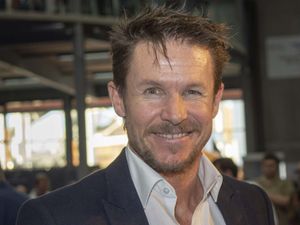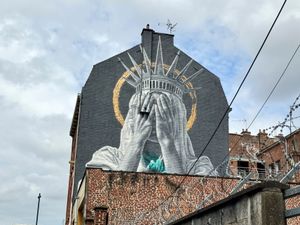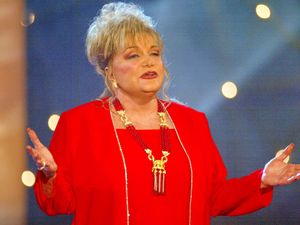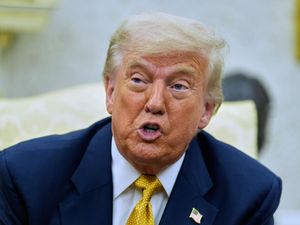Slovakian prime minister’s condition ‘not life threatening’ after shooting
Deputy prime minister Tomas Taraba told the BBC: ‘He’s not in a life threatening situation at this moment.’
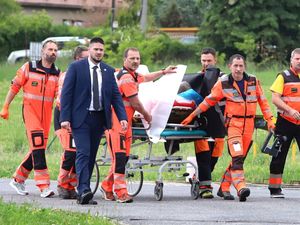
Slovakia’s populist prime minister Robert Fico is “not in a life threatening situation” after he was shot multiple times and gravely wounded on Wednesday, his deputy prime minister has said.
The prime minister had been greeting supporters at an event in the town of Handlova, 85 miles north-east of the capital.
Government officials confirmed that five shots were fired outside of the cultural centre where the prime minister was attending a government meeting.
A hospital official in Banska Bystrica said Mr Fico was in a serious but stable condition.

Deputy prime minister Tomas Taraba told the BBC: “I guess in the end he will survive.
“He’s not in a life threatening situation at this moment.”
Speaking outside of the hospital where the prime minister was receiving treatment, defence minister Robert Kalina told reporters that the prime minister had been hit in the abdomen and that doctors had fought for his life for several hours.
A suspect has been taken into custody in connection with the assassination attempt.
Acording to interior minister Matus Sutaj Estok, who briefed reporters alongside the defence minister, an initial investigation found “a clear political motivation” behind the assassination attempt.
Outgoing president Zuzana Caputova, a political rival of Mr Fico, said in a televised statement: “A physical attack on the prime minister is, first of all, an attack on a person, but it is also an attack on democracy.
“Any violence is unacceptable. The hateful rhetoric we’ve been witnessing in society leads to hateful actions. Please, let’s stop it.”

President-elect Peter Pellegrini, an ally of Mr Fico, called the shooting “an unprecedented threat to Slovak democracy”.
He said: “If we express other political opinions with pistols in squares and not in polling stations, we are jeopardising everything that we have built together over 31 years of Slovak sovereignty.”
The recent elections that brought Mr Fico and his allies to power have underlined deep social divisions, exacerbated by the war in Ukraine, Slovakia’s neighbour to the east.
Mr Fico has long been a divisive figure in Slovakia and beyond. Still, his return to power last year on a pro-Russian, anti-American message led to even greater worries among fellow European Union members that he would lead his country further from the Western mainstream.
Kicking off his fourth term as prime minister, Mr Fico’s government halted arms deliveries to Ukraine, and critics worry that he will lead Slovakia — a nation of 5.4 million that belongs to Nato — to abandon its pro-Western course and follow in the footsteps of Hungary under populist leader Viktor Orban.
The attack comes as political campaigning heats up three weeks ahead of Europe-wide elections to choose lawmakers for the European Parliament.
Concern is mounting that populists and nationalists like Mr Fico could make gains in the 27-member bloc.

